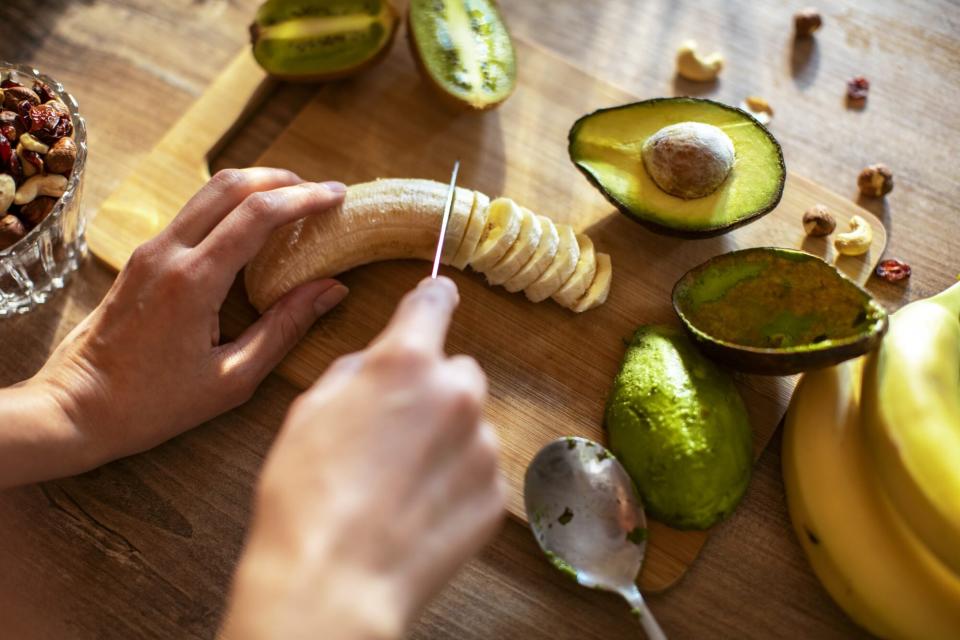Eating Bananas, Avocados, and Other Potassium-Rich Foods May Improve Heart Health in Women, New Study Shows
It's no secret that certain foods are better for our hearts than others, but a new study just revealed that eating things with a lot of potassium—think fish, avocados, and bananas—are especially beneficial for women. According to research recently published in European Heart Journal, potassium-rich diets were associated with lower blood pressure, particularly in women with high salt intake.
"It is well known that high salt consumption is associated with elevated blood pressure and a raised risk of heart attacks and strokes," study author Professor Liffert Vogt of Amsterdam University Medical Centers in the Netherlands said in a press release. "Health advice has focused on limiting salt intake, but this is difficult to achieve when our diets include processed foods. Potassium helps the body excrete more sodium in the urine. In our study, dietary potassium was linked with the greatest health gains in women."
To obtain their findings, researchers asked 24,963 participants—11,267 men and 13,696 women—between the ages of 40 and 79 to complete a questionnaire on their lifestyle habits. Additionally, each subjects' blood pressure was measured and a urine sample was collected to calculate sodium and potassium intake. The participants were then divided into groups according to their sodium and potassium consumption on a scale of low, medium, and high.

Marko Geber / Getty Images
Related: Eating Two Servings of Avocado Each Week Could Decrease Your Risk of Having a Heart Attack
The researchers then analyzed the connection between potassium intake and blood pressure, adjusting for age, sex, and sodium intake. In women, they found that as potassium consumption went up, blood pressure went down. (The study noted that the relationship between potassium and blood pressure was only present in women with high sodium intake.) The association between potassium and blood pressure wasn't present in men.
During a median follow-up of 19.5 years, the researchers found that 55 percent of the participants were hospitalized or died to due cardiovascular disease. When looking at the connection between potassium intake and cardiovascular events, they found that people who consumed the highest amounts of potassium were 13 percent less likely to suffer from heart attack or stroke.
Related: The Best Foods to Eat If You Have Heart Disease
"The results suggest that potassium helps preserve heart health, but that women benefit more than men," said Professor Vogt. "The relationship between potassium and cardiovascular events was the same regardless of salt intake, suggesting that potassium has other ways of protecting the heart on top of increasing sodium excretion."
So, how much potassium should you consume daily? According to the World Health Organization, adults should consume at least 3.5 grams of potassium and less than two grams of sodium per day. High potassium foods include vegetables, fruit, nuts, beans, dairy products, and fish.

